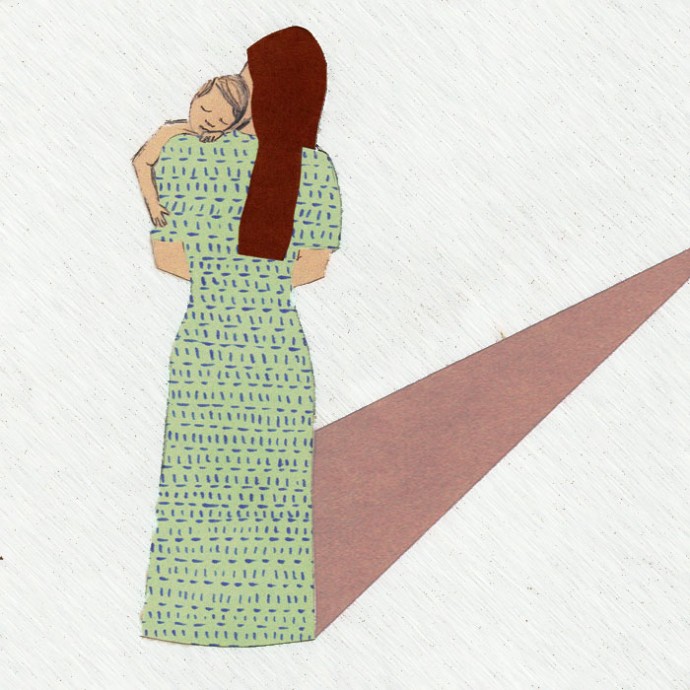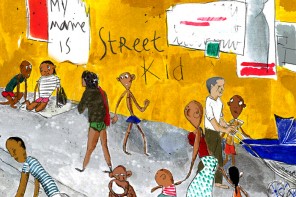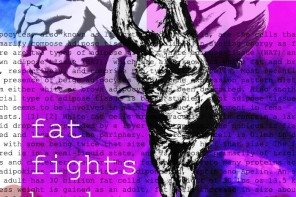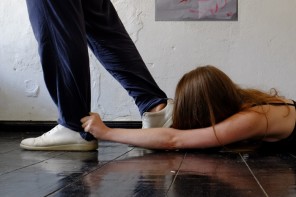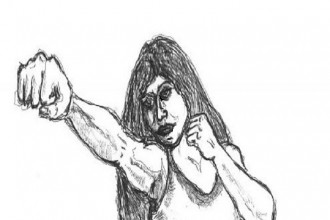Beautiful Pain is a dissection of two seemingly unrelated human states: beauty and ugliness. While on Holiday in Mexico, writer Jacob Sneed witnessed the two colliding to create a wholly new emotion.
She was just a girl in a magical place with a scar. I bought ciggies from her and told her she was beautiful. She held her baby and smiled. I’ve gone from that place now. It is far and distant, but her face remains emblazoned in the frame of my mind, forever visible, as was the scar across her face.
“Hola bonita. ”
She didn’t speak much. Her eyes swept shyly across the cement as if it might open up and swallow her at any moment. I wondered if she wished it would.
I know at times I do.
The headaches never leave; the voices are forever present, pushing me across cities and states in foreign lands, searching for something I fear I may never find. The beauty within pain. My hurts and fears I’ve learned to tuck deep within me, hidden from sight
Her beauty could have been marred but it wasn’t. Etched across her face were painful memories – that pretty, scarred cigarette girl, clutching her new born baby in the twilight of long days in the south of Mexico. I always gave her twice the amount of the cost of a pack of Camel Gold. She didn’t ask, of course – her face held an elegant, yet stubborn pride – and I’d walk the length of the village to buy ciggs from her, despite the myriad hawkers that lined those crooked, cobbled lanes.
Her hands shook always, despite the fact that it was quite warm, most days. She’d be huddled amid a gaggle of older ladies with not much to do, other than chattering away their days in rapid, Mexican-accented Spanish. I wondered at her story, her scar, and who’d cursed her to remain such an unparalleled beauty in a place that hardly would recognize the depth of her intrigue.
Her dress was reflective of her Mayan culture; her tongue of Spanish origin; her baby was a bastard. I know this only because I asked.
“Donde es tu esposo bonita?”
“No tengo un esposo chico, el es no hay.”
She said it with a small, hardly discernable smirk, as if she preferred it that way. I’m not sure why I even asked. I’m not too sure I cared. There was something beyond just her appearance that drew her to me. It was a look in her eyes that was mirrored in my own. Resilience, determination, a brave disregard for the obstacles that might waylay her survival, just as my own has been waylaid so often.
The odd assortment of characters that made up my typical entourage: a wizard, a gypsy, and an illegally immigrated Salvadorean hippie were not privy to my cigg excursions. I would often give them some half mumbled excuse for disappearing to find cigarettes on my own as if my very public relationship with the cigarette girl were some secret. Completely contrary to that, it was played out in one of the largest of the village squares, in which she always sat. It was the only place I ever saw her. Sometimes, when she wasn’t there, the other women would point to me and wave, beckoning me over to tell me she had just left or stayed home that day. Once, when I was ill for a week and didn’t leave home, they told me she’d asked if I had been around.
“Coma estas bonita?”
“”Bien, bien chico. De donde eres?”
The conversations were simple when we did cross paths, constrained by my limited Spanish and her nonexistent English, but that wasn’t the reason I enjoyed them. In such a place, where the streets are littered with the evidence of usually unseen forces, the magic that brings people such as her and I into each other’s company, it was everything we didn’t say to each other, but understood, that meant so much more.
The way that the lines of her face creased into a weary smile said more about her than words ever could. The scar stretched from above one almond-shaped eye, across her forehead, to the back of her ear. I’ve seen enough knife wounds to recognize one, and hers looked exactly like those I’d seen: angry, the residue of violence dripping across her face. In most others, it would have completely ruined their ability to retain such innocence and beauty.
I do not know what has become of that cigarette girl and her little baby. The baby has probably grown. Equally as likely, she still sits in that same square selling loose ciggies to the residents of that magical little place. I am far from her now, and eventually may even forget exactly how she looked – a faded, distant memory clouded by the potency of all the others that float through my unquiet mind – but I will never forget when I found beautiful pain. I am reminded of her every time I look in a mirror. If there are Gods to whom one should pray, and I was as praying man, I’d ask only that, inasmuch as I might survive my own ills, she might survive hers.
“Un cigaro chico?”

